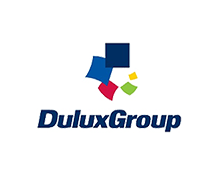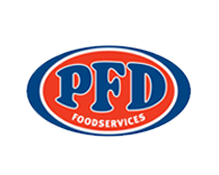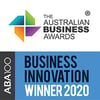Optimization
Optimization is the process of finding the best solution to a problem, given some constraints.
Optimisation is a concept that has long been utilised by humans to manage their resources and maximise efficiency. It requires careful analysis, planning, and implementation in order to be successful. This article will explore the various aspects of optimisation - from its history to its modern applications - as well as why it might be beneficial for individuals or organisations.
The use of optimisation dates back centuries; ancient civilisations used optimisation techniques such as trial-and-error methods and simple mathematical models in order to achieve desired objectives with limited resources. Today, advanced algorithmic techniques allow us to optimise complex systems in ways our ancestors could only dream of. Through the combination of mathematics, computer science, and data analysis, we can now create highly efficient systems which are capable of making optimal decisions within given constraints.
By understanding both traditional and modern approaches to optimisation, readers will gain an insight into how this powerful tool works and learn how they can apply it to their own lives or businesses. The aim of this article is not just to explain what optimisation is but also provide practical advice on how one might go about using it effectively.
What Is Optimisation And Why It Is Used
Optimisation is a mathematical process of finding the best solution to an objective function. It involves searching for maximum or minimum values of a certain variable, which can be found through various optimisation techniques and methods. Its applications range from engineering design to mathematical economics. Generally speaking, these problems involve local extrema - either local maxima or minima - that are determined by the second derivative test. To find these solutions, several optimisation methods have been developed including linear programming, dynamic programming and simulated annealing.
In essence, all optimisation problems aim to achieve the same goal: improving performance in terms of cost reduction and efficiency gains. This is why it is widely used across many industries as well as by individual researchers who seek improved outcomes for their projects. Optimisation can also help with decision making processes since it provides insight into what combination of parameters will yield better results thus allowing users to make more informed decisions. Additionally, it helps identify potential improvements in productivity and quality resulting in increased competitiveness within any given sector.
The benefits of optimisation are clear; however its implementation can be difficult due to the complexity of some models and algorithms involved in the process. Furthermore, there's always a risk of getting stuck at local minima instead of global ones when dealing with complex problems so practitioners must take extra caution while running optimisations on large datasets. Nevertheless, if done correctly it has proven itself as a powerful tool capable of providing significant insights into how different variables interact with each other which allows us to maximise our resources efficiently thereby ensuring continued success for our operations down the line
What's Another Word For Optimisation
Optimisation is the process of finding a numerical solution that maximises or minimises an objective function. It can be used to solve problems in many fields, such as operations research, economics, computer science and engineering. In mathematics, optimisation techniques are often divided into linear programming, nonlinear programming, model predictive control and space mapping. Other topics related to mathematical optimisation include multi-objective optimisation, extreme value theory and numerical techniques.
The term 'optimisation' does not have one single synonym but there are several terms which convey similar meanings. For example, cost reduction or cost minimisation refer to the same concept as optimising a cost function; likewise efficiency improvement describes what is achieved through the use of mathematical optimisation techniques. Similarly, the term operation research (OR) may also be used interchangeably with optimisation when discussing problems related to decision making under uncertainty. Finally, when talking about decisions made on a strategic level then terms like ‘maximising returns’ or ‘maximising profits’ might be more appropriate than using the word "optimisation".
What Is The Goal Of Optimisation?
Optimisation is a complex mathematical process that involves finding the maximum or minimum value of an objective function. It is used in many fields, such as engineering, economics, and computer science to solve difficult problems. The goal of optimisation is to find a candidate solution which can achieve either a maximum or a minimum value for the given problem.
The process starts by defining a surface area – this defines the range within which we can search for the optimal value. In order to identify where this point lies on the surface, first derivatives are taken from each variable in the equation until all variables have been accounted for. By using second derivatives tests and first order conditions it becomes possible to detect absolute extrema (maxima/minima) at critical points along with their corresponding values; these are then compared before determining which one represents the optimal solution.
In essence, optimisation is about understanding how small changes made to different unknowns affect its overall performance: what will be our optimum output if we adjust certain inputs? How do large-scale decisions translate into smaller adjustments within equations? Optimisation helps us answer these questions by measuring how changing parameters affects efficiency, cost, time and more through graphs plotted on two axes. With this method it’s possible to identify patterns and trends while pinpointing areas of improvement at any stage of development - allowing us to reach our desired outcome faster than ever before!
Whether you're looking for a maximum value or trying to minimise resources spent reaching your target, optimisation provides invaluable insight into finding an optimal value suitable for both short-term projects and long-term objectives alike. Using analytical methods like calculus and linear programming allows us to make better informed decisions quickly without compromising quality or accuracy; ultimately providing an effective means of streamlining processes - saving both time and money!
What Are The Two Types Of Optimisation?
Optimisation is the process of finding an optimal solution to a problem. There are two types of optimisation:
- mathematical programming
- and quantum inspired optimisation.
Mathematical programming involves solving problems with single variables or equations, such as linear programs or combinatorial optimisation problems. It requires creating objective functions that must be minimised or maximised, along with equality constraints to keep solutions within certain bounds. These objectives may include slack variables for additional flexibility in the system. One popular method used for this type of optimisation is the simplex method, which uses linear algebraic principles to identify a local minimum point on the surface.
Quantum inspired optimisation is based on probabilistic algorithms from quantum computing theory. This approach relies on interior point methods to obtain global optima through iterative improvement cycles instead of traditional search techniques like hill climbing or simulated annealing. The advantage of this type of algorithm lies in its ability to reach deep minima without having prior knowledge about the structure of the landscape; meaning it can find better solutions than conventional mathematics-based approaches. Other benefits include scalability and high accuracy at low cost computation time compared to other computational models. In addition, these algorithms tend to work well when there are many parameters involved, making them suitable for large scale real world applications where exact solutions cannot easily be obtained by mathematical means alone.
What's Another Word For Optimisation?
Optimisation is the process of finding a feasible solution that achieves an optimal result. It is also known as mathematical programming and can be used to solve unconstrained or constrained problems in nonlinear functions, convex programming and other areas. Here are some critical points to consider when discussing optimisation:
- Derivative test: This test determines whether a local maximum or minimum value has been reached.
- Absolute maximum/minimum values: These determine the highest/lowest possible outcome for any given problem.
- Optimal Solution: The best-possible answer within a certain set of conditions that minimises or maximises an objective function.
- Local Minimum/Maximum Values: These refer to solutions which may not necessarily be globally optimal solutions but still provide satisfactory results within their own confined area.
Achieving successful optimisation requires knowledge of these key elements, including understanding how to apply them correctly in order to find the most suitable feasible solutions with minimum value objectives. Solutions should deliver optimal outcomes while minimising costs and resources, ensuring practicality and effectiveness at all times. Allowing professionals to identify potential opportunities and develop strategies accordingly will help ensure desired results are obtained quickly and efficiently regardless of size or complexity.
Conclusion
Optimisation is an important concept in many fields. It consists of finding solutions to difficult problems that maximise the desired outcome while minimising costs and resources. Optimising a process or system can help increase efficiency, reduce waste and improve performance. Synonymous with optimisation are words such as improvement, upgrading and refining.
The goal of optimisation is to achieve the highest possible value for all parameters being optimised. This could mean reducing cost or time needed to complete a task, increasing profits or improving customer satisfaction. According to operations research theory, there are two main types of optimisation: linear programming and nonlinear programming. The former involves optimising one variable at a time, whereas the latter requires simultaneous consideration of multiple variables.
In conclusion, optimisation is an essential concept used to solve difficult problems and optimise processes or systems by maximising desirable outcomes while minimising costs and resources. It has various synonyms including improvement, upgrading and refining and its goal is generally to attain the highest possible values across all parameters being optimised. There are two major types of optimisation:
- linear programming which focuses on optimising single variables;
- and nonlinear programming which deals with multiple variables simultaneously.
PREVIOUS NARROW AI GLOSSARY TERM
NEXT NARROW AI GLOSSARY TERM
Optimization Definition
Exact match keyword: Optimization N-Gram Classification: Data Optimization, Process Optimization, Supply Chain Optimization Substring Matches: Opt, timiz Long-tail variations: "Data Optimization", "Process Optimization", "Supply Chain Optimization" Category: Business, Technology Search Intent: Research, Solutions Keyword Associations: Efficiency, Automation, Improvement Semantic Relevance: Efficiency, Automation, Improvement, Analytics Parent Category: Business Subcategories: Data Optimization, Process Optimization, Supply Chain Optimization Synonyms: Efficiency, Automation, Improvement Similar Searches: Data Optimization Strategies, Performance Management Software Geographic Relevance: Global Audience Demographics: Business Professionals, Students and Researchers Brand Mentions: IBM Watson AI Platforms , Oracle Cloud Solutions , Microsoft Azure AI Industry-specific data: Capacity analysis , Algorithmic models , Nonlinear optimization techniques 360 degree feedback system Commonly used modifiers:"Software","Techniques","Models" Topically Relevant Entities : Efficiency ,Automation ,Improvement ,Analytics ,Data Optmimzation Strategies ,Performance Management Software ,Capacity Analysis , Algorithmic Models."Larry will be our digital expert that will enable our sales team and add that technological advantage that our competitors don't have."
Kerry Smith
CEO, PFD Foods
$1.6 billion in revenue 
"Lion is one of Australasia’s largest food and beverage companies, supplying various alcohol products to wholesalers and retailers, and running multiple and frequent trade promotions throughout the year. The creation of promotional plans is a complicated task that requires considerable expertise and effort, and is an area where improved decision-making has the potential to positively impact the sales growth of various Lion products and product categories. Given Complexica’s world-class prediction and optimisation capabilities, award-winning software applications, and significant customer base in the food and alcohol industry, we have selected Complexica as our vendor of choice for trade promotion optimisation."
Mark Powell
National Sales Director, Lion
"At Liquor Barons we have an entrepreneurial mindset and are proud of being proactive rather than reactive in our approach to delivering the best possible customer service, which includes our premier liquor loyalty program and consumer-driven marketing. Given Complexica’s expertise in the Liquor industry, and significant customer base on both the retail and supplier side, we chose Complexica's Promotional Campaign Manager for digitalizing our spreadsheet-based approach for promotion planning, range management, and supplier portal access, which in turn will lift the sophistication of our key marketing processes."
Richard Verney
Marketing Manager
Liquor Barons

"Dulux is a leading marketer and manufacturer of some of Australia’s most recognised paint brands. The Dulux Retail sales team manage a diverse portfolio of products and the execution of our sales and marketing activity within both large, medium and small format home improvement retail stores. We consistently challenge ourselves to innovate and grow and to create greater value for our customers and the end consumer. Given the rise and application of Artificial Intelligence in recent times, we have partnered with Complexica to help us identify the right insight at the right time to improve our focus, decision making, execution, and value creation."
Jay Bedford
National Retail Sales Manager
Dulux

"Following a successful proof-of-concept earlier this year, we have selected Complexica as our vendor of choice for standardizing and optimising our promotional planning activities. Complexica’s Promotional Campaign Manager will provide us with a cloud-based platform for automating and optimising promotional planning for more than 2,700 stores, leading to improved decision-making, promotional effectiveness, and financial outcomes for our retail stores."
Rod Pritchard
Interim CEO, Metcash - Australian Liquor Marketers
$3.4 billion in revenue 
"After evaluating a number of software applications and vendors available on the market, we have decided to partner with Complexica for sales force optimisation and automation. We have found Complexica’s applications to be best suited for our extensive SKU range and large set of customers, being capable of generating recommendations and insights without burdening our sales staff with endless data analysis and interpretation.
Aemel Nordin
Managing Director, Polyaire
"DuluxGroup is pleased to expand its relationship with Complexica, a valued strategic partner and supplier to our business. Complexica’s software will enable DuluxGroup to reduce the amount of time required to generate usable insights, increase our campaign automation capability, personalise our communications based on core metrics, and close the loop on sales results to optimise ongoing digital marketing activity."
James Jones
Group Head of CRM, DuluxGroup
"Instead of hiring hundreds of data scientists to churn through endless sets of data to provide PFD with customer-specific insights and personalised recommendations, Larry, the Digital Analyst® will serve up the answers we need, when we need them, on a fully automated basis without the time and manual processes typically associated with complex analytical tasks.”
Richard Cohen
CIO, PFD Foods
$1.6 billion in revenue 
"As a global innovator in the wine industry, Pernod Ricard Winemakers is always seeking ways to gain efficiencies and best practices across our operational sites. Given the rise of Artificial Intelligence and big data analytics in recent times, we have engaged Complexica to explore how we can achieve a best-in-class wine supply chain using their cloud-based software applications. The engagement is focused on Australia & New Zealand, with a view to expand globally."
Brett McKinnon
Global Operations Director, Pernod Ricard Winemakers
"70% - 80% of what we do is about promotional activity, promotional pricing -- essentially what we take to the marketplace. This is one of the most comprehensive, most complex, one of the most difficult aspect of our business to get right. With Complexica, we will be best in class - there will not be anybody in the market that can perform this task more effectively or more efficiently than we can."
Doug Misener
CEO, Liquor Marketing Group
1,400+ retail stores 
"The key thing that makes such a difference in working with Complexica is their focus on delivering the business benefits and outcomes of the project."
Doug Misener
CEO, Liquor Marketing Group
1,400+ retail stores 
"Australia needs smart technology and people, and it has been a great experience for me to observe Complexica co-founders Zbigniew and Matt Michalewicz assemble great teams of people using their mathematical, logic, programming, and business skills to create world-beating products. They are leaders in taking our bright graduates and forging them into the businesses of the future."
Lewis Owens
Chairman of the Board, SA Water 
"Having known the team behind Complexica for some years ago now, I am struck by their ability to make the complex simple - to use data and all its possibilities for useful purpose. They bring real intelligence to AI and have an commercial approach to its application."
Andrew McEvoy
Managing Director, Fairfax Media - Digital 
"I have worked with the team at Complexica for a number of years and have found them professional, innovative and have appreciated their partnership approach to delivering solutions to complex problems."
Kelvin McGrath
CIO, Asciano 
“Working with Complexica to deliver Project Automate has been a true partnership from the initial stages of analysis of LMG’s existing processes and data handling, through scoping and development phase and onto delivery and process change adoption. The Complexica team have delivered considerable value at each stage and will continue to be a valued partner to LMG."
Gavin Saunders
CFO, Liquor Marketing Group 
“Complexica’s Order Management System and Larry, the Digital Analyst will provide more than 300 Bunzl account managers with real-time analytics and insights, to empower decision making and enhanced support. This will create more time for our teams to enable them to see more customers each day and provide the Bunzl personalised experience.”
Kim Hetherington
CEO, Bunzl Australasia 
"The team behind Complexica develops software products that are at the cutting edge of science and technology, always focused on the opportunities to deliver a decisive competitive edge to business. It has always been a great experience collaborating with Matthew, Zbigniew and Co."
Mike Lomman
GM Demand Chain, Roy Hill Iron Ore 
"The innovations that the Complexica team are capable of continue to amaze me. They look at problems from the client side and use a unique approach to collaborating with and deeply understanding their customers challenges. This uniquely differentiates what they bring to market and how they deliver value to customers."
John Ansley
CIO, Toll Group 
"Rather than building out an internal analytics team to investigate and analyse countless data sets, we have partnered with Complexica to provide our sales reps with the answers they need, when they need them, on a fully automated basis. We are excited about the benefits that Larry, the Digital Analyst will deliver to our business.”
Peter Caughey
CEO, Coventry Group 
“Complexica’s Order Management System and Larry, the Digital Analyst will provide more than 300 Bunzl account managers with real-time analytics and insights, to empower decision making and enhanced support. This will create more time for our teams to enable them to see more customers each day and provide the Bunzl personalised experience.”
Kim Hetherington
CEO, Bunzl Australasia 
"After an evaluation process and successful proof-of-concept in 2016, we have chosen to partner with Complexica to upgrade the technological capability of our in-field sales force. The next-generation Customer Opportunity Profiler provided by Complexica will serve as a key tool for sales staff to optimise their daily activities, personalise conversations and interactions with customers, and analyse data to generate actionable insights."
Stephen Mooney
Group Sales Capability Manager, DuluxGroup
$1.7 billion in revenue
"After evaluating a number of software systems available in the marketplace, we have ultimately selected Complexica as our vendor of choice for sales force automation and CRM. Given the large SKU range we carry and very long tail of customers we serve, Complexica’s applications are best suited to deal with this inherent complexity without burdening our staff with endless data entry."
Nick Carr
CEO, Haircaire Australia
Australia's largest distributor of haircare products
“Asahi Beverages is Australia’s largest brewer, supplying a leading portfolio to wholesalers and retailers, including some of Australia’s most iconic brands. Last year Asahi Beverages acquired Carlton & United Breweries, which is its Australian alcohol business division. To harness the strength of our expanded portfolio, we partner with our customers to run multiple and frequent trade promotions throughout the year, delivering long-term growth for both our business and theirs. Given the inherent complexity in optimising promotional plans and our continued focus on revenue and growth management, we have selected Complexica as our vendor of choice after a successful Proof-of-Concept of its world-class optimisation capabilities.”
Kellie Barnes
Group Chief Information Officer
Asahi Beverages
"Dulux is a leading marketer and manufacturer of some of Australia’s most recognised paint brands. The Dulux Retail sales team manage a diverse portfolio of products and the execution of our sales and marketing activity within both large, medium and small format home improvement retail stores. We consistently challenge ourselves to innovate and grow and to create greater value for our customers and the end consumer. Given the rise and application of Artificial Intelligence in recent times, we have partnered with Complexica to help us identify the right insight at the right time to improve our focus, decision making, execution, and value creation."
Jay Bedford
National Retail Sales Manager, DuluxGroup
"At Liquor Barons we have an entrepreneurial mindset and are proud of being proactive rather than reactive in our approach to delivering the best possible customer service, which includes our premier liquor loyalty program and consumer-driven marketing. Given Complexica’s expertise in the Liquor industry, and significant customer base on both the retail and supplier side, we chose Complexica's Promotional Campaign Manager for digitalizing our spreadsheet-based approach for promotion planning, range management, and supplier portal access, which in turn will lift the sophistication of our key marketing processes."
Richard Verney
Marketing Manager, Liquor Barons



































